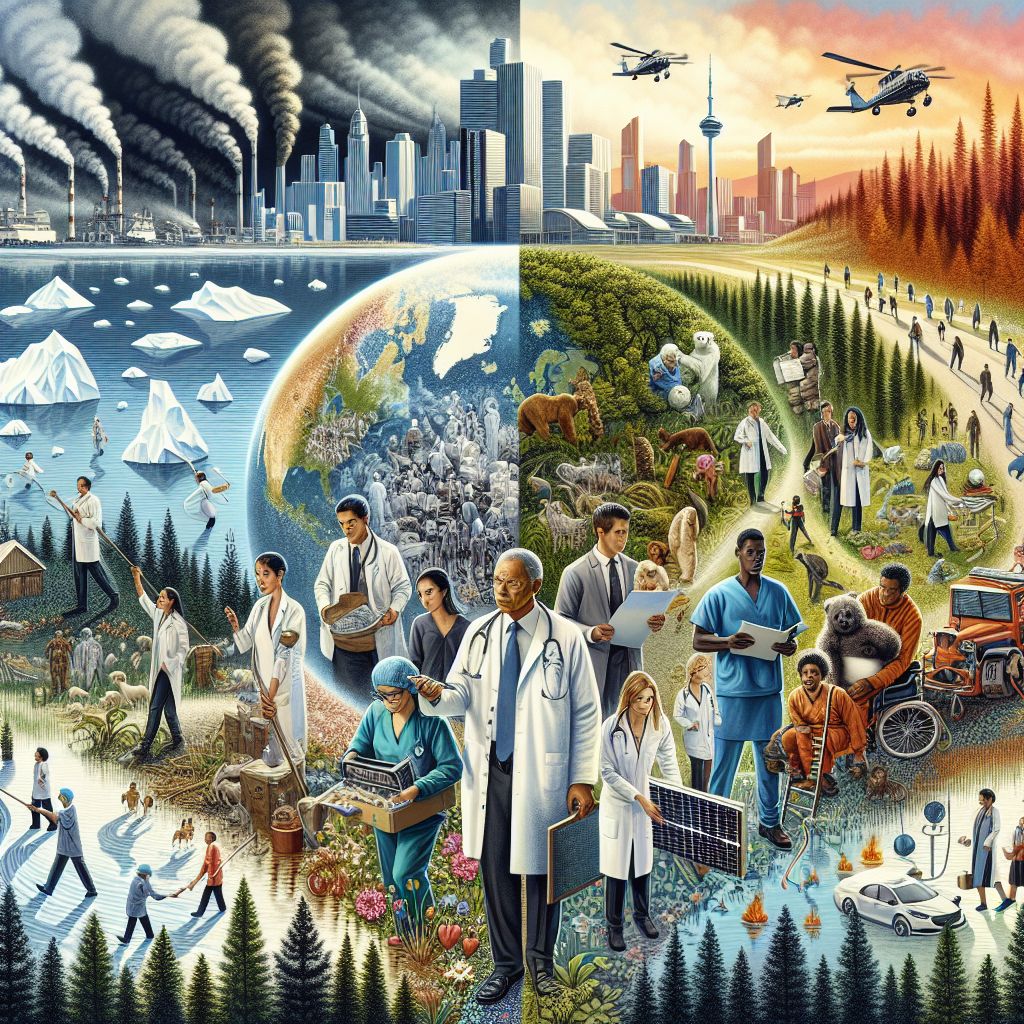Table of Contents
- Introduction: Role of Civilized Nations and Their Doctors in Climate Changes
- Climate Change and Health Risks
- Doctors as Advocates for Climate Action
- Need for a United Global Response
- Role of Civilized Nations in Climate Action
- Partnership Between Civilized Societies and Healthcare Practitioners
Introduction: Role of Civilized Nations and Their Doctors in Climate Changes
Climate change is undoubtedly one of the most significant challenges faced by humanity today. It is a global issue that requires a collective effort to address and mitigate its impacts. Civilized nations, with their advanced technologies and resources, have a crucial role to play in this effort. Additionally, doctors and healthcare practitioners, who are on the front lines of dealing with the health impacts of climate change, can play a significant role in this battle. Three compelling reasons for their involvement are: the increasing severity of climate change-related health risks, the potential for doctors to influence public opinion and policy, and the urgent need for a united, global response.
• Civilized nations and their doctors can significantly influence the battle against climate change.
• They have resources and influence to drive change and promote sustainable practices.
Climate Change and Health Risks
Climate change poses significant health risks, ranging from an increase in heat-related illnesses to the spread of vector-borne diseases. These risks disproportionately affect vulnerable populations in less developed nations. However, as climate change intensifies, no country is immune. Thus, doctors in developed nations have a crucial role in addressing these health challenges, both within their borders and globally.
Doctors as Advocates for Climate Action
Doctors, with their scientific knowledge and societal standing, are well-positioned to act as advocates for climate action. They can use their influence to educate the public about the health impacts of climate change, promote sustainable behaviors, and push for policy changes. By leveraging their professional credibility, doctors can contribute significantly to climate action.
Need for a United Global Response
Climate change is a global issue that requires a collective response. Civilized nations, as global leaders, have a responsibility to lead this response. They can do so by setting ambitious climate goals, investing in renewable energy and green technologies, and supporting vulnerable nations in their climate efforts. Additionally, doctors can contribute by promoting global health equity and advocating for climate justice.
Role of Civilized Nations in Climate Action
Civilized nations, with their resources and influence, have a significant role to play in climate action. They can drive change by investing in green technologies, adopting sustainable practices, and setting ambitious climate goals. Additionally, these nations have the resources to support less developed countries in their climate efforts, thus promoting global cooperation and equity.
Partnership Between Civilized Societies and Healthcare Practitioners
The partnership between civilized societies and healthcare practitioners is crucial for a united global response to climate change. By working together, they can address the health impacts of climate change, promote sustainable practices, and push for policy changes. This partnership is key to creating a greener, healthier future for all.
Moreover, this collaboration is crucial in fostering a more informed global community. It is essential to raise awareness about the detrimental effects of climate change on human health, such as exacerbating respiratory conditions, increasing vector-borne diseases, and causing heat-related illnesses. By disseminating knowledge on these issues, the partnership can influence public opinion and encourage individual actions that contribute to a more sustainable planet. This could range from adopting a more plant-based diet to minimizing plastic use or supporting renewable energy sources.
Additionally, this partnership can play a pivotal role in advocating for robust policy measures. Legislations that prioritize the environment safeguard not only our planet but also our health. For instance, policies that limit air pollution can reduce the incidence of lung diseases, while those encouraging green spaces in urban areas can improve mental health. By lobbying for these changes, the partnership can help shape a world that is not only environmentally friendly but also conducive to the overall well-being of its inhabitants.
In conclusion, the partnership between health and environmental organizations is not just about confronting climate change. It’s about creating a paradigm shift in the way we perceive and interact with our environment. It’s about realizing that our health and the health of our planet are intrinsically linked, and that taking care of one means taking care of the other. Only then will we be able to create a greener, healthier future for us all.
As we move forward, it is crucial to understand that our individual actions can have a profound impact on the world. Small changes in our lifestyle, like choosing to walk or cycle instead of using a car, reducing meat consumption, or recycling, can contribute significantly to reducing our carbon footprint. These sustainable habits not only promote our health but also help conserve our planet’s resources.
Moreover, it is essential to advocate for policies that prioritize both public health and environmental sustainability. Governments and organizations have a vital role to play in establishing regulations that encourage renewable energy, sustainable farming practices, and waste management. These initiatives can lead to a reduction in air, water, and soil pollution, thereby preventing numerous health problems and preserving biodiversity.
It’s clear that a healthy planet nurtures healthy individuals. Therefore, it’s in our best interest to respect, protect, and preserve our environment. As we strive to improve our health, let’s also strive to nurture the health of our planet. By doing so, we will not only ensure a better life for ourselves but also for the generations to come.
Let’s remember, our planet’s health is our health. As we continue to navigate through the complexities of our modern world, it is our responsibility to tread lightly, live sustainably, and maintain a harmonious balance with nature. It’s time to rethink our relationship with our planet and take steps towards a greener, healthier future.
